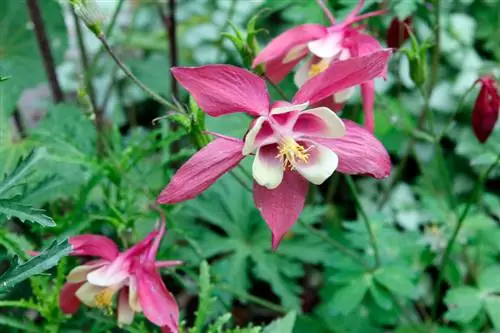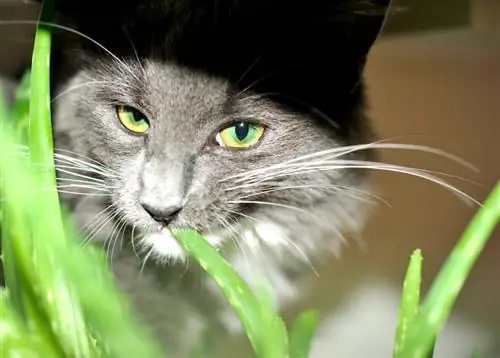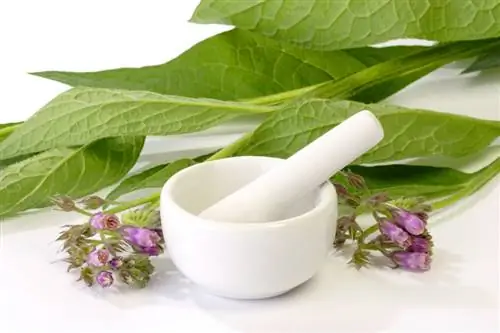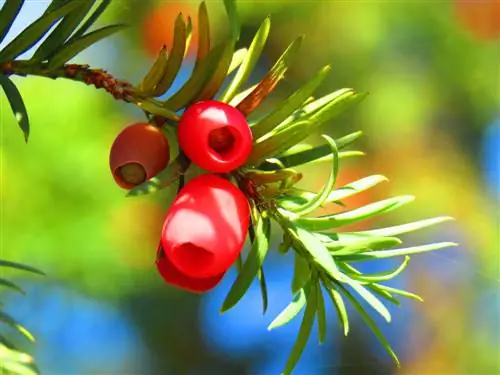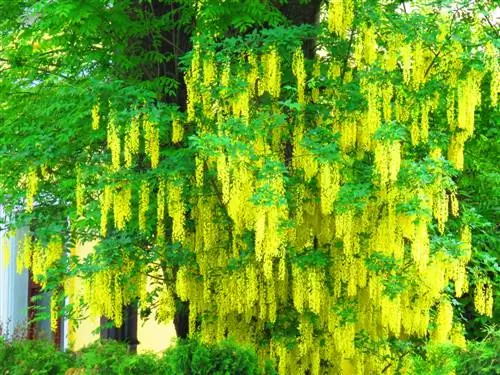- Author admin leonars@hobbygardeners.com.
- Public 2023-12-16 16:46.
- Last modified 2025-01-23 11:20.
With its delicate flowers that float like elves above the slender stems, the columbine appears harmless. But is it really that or does it contain toxins in its plant parts?
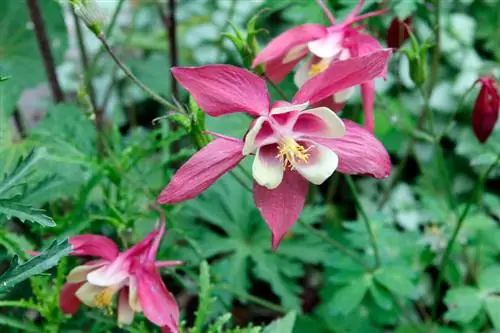
Is the columbine plant poisonous?
Columbine (Aquilegia vulgaris) is slightly poisonous and contains toxic substances such as glycosides that form hydrogen cyanide and magnoflorin in all parts of the plant, especially in the seeds. Poisoning can cause symptoms such as shortness of breath, nausea, vomiting, diarrhea, cardiac arrhythmias and convulsions.
Columbine is slightly poisonous
Columbine or Aquilegia vulgaris, like all other plants in the buttercup family, is poisonous. Compared to other poisonous plants, it is classified as slightly poisonous. Poisonings that resulted in death are not yet known.
The entire plant contains toxins. What stands out are the seeds that ripen between July and August. They contain the highest levels of toxic substances. A glycoside that forms hydrogen cyanide and magnoflorin are toxic.
Symptoms of poisoning
If you eat a columbine due to ignorance, symptoms of poisoning may occur. Just 20 to 30 g of the fresh leaves (depending on body weight and condition) can lead to the following symptoms:
- Shortness of breath
- Nausea
- Vomiting
- Diarrhea
- Cardiac arrhythmias
- Cramps
But columbine is not only poisonous internally. Even if you come into skin contact with it, symptoms of poisoning such as skin irritation, redness and blisters can become noticeable. To prevent this, it is recommended to wear gloves when handling and especially when cutting the columbine.
Dried and heated non-toxic
The toxins can be rendered harmless. As soon as the columbine is dried or heated, the toxins evaporate. Therefore, the planted herb can be harvested and used in tea blends or externally, for example as a poultice. It works against:
- Rheumatism
- Gout
- Digestive problems
- Ulcers
- Abscesses
- Parasites
Tips & Tricks
Because columbine tastes bitter, children or animals usually only consume small amounts of it or spit out the parts of the plant immediately.

